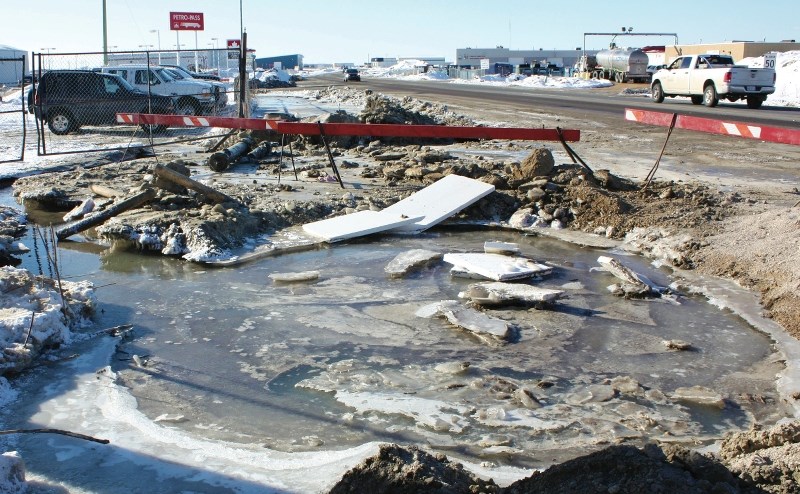A milder winter for north eastern Albertans has been a blessing for some infrastructure aspects in the area, but spelled trouble for others.
“We were kind of lucky this year, there was only the three major snow falls,” said MD of Bonnyville CAO Chris Cambridge. “Also, with the nature of this winter we didn't get much frost damage. If you have any water under the roads, as they freeze and frost, the roads can deteriorate. This was a pretty good winter, we haven't seen much of that this spring.”
Cambridge, along with officials from the Town of Bonnyville and City of Cold Lake, agree that compared to previous years the infrastructure seems to have held up a lot better. The main aspect that benefits from the warmer temperatures was the water lines.
“In the areas where we have water and sewer in the hamlets, we didn't have a lot of issues this winter at all with water pipes and stuff heaving, so that's been pretty good,” explained Cambridge.
“We had a smaller amount of water breaks than normal this winter because we had a pretty good winter. Probably only four or five serious water breaks,” said Lyndon Lay, Public Works and Utilities Director for the Town.
City of Cold Lake CAO Kevin Nagoya noted that it was the same case for the city this year when it comes to water main breaks.
“Our water main breaks are down in terms of annually. Last year was probably our worst year in a decade but this year it was a little bit of a warmer winter. The frost wasn't as deep so it wasn't as bad in terms of historic figures.”
However, not all infrastructure in the area benefitted from the mild winter. Lay explained that an early thaw, along with the drastic fluctuation in temperatures over the past few months, has created havoc, with sitting water becoming a bit of an issue.
“That spring thaw we had in January when everything warmed up there, that then froze all of our storm sewers up so we were fighting with that a bit,” said Lay.
He added, “We're constantly repairing. The roads in the spring time are taking a beating with the freeze thaw cycles. It's an ongoing thing.”
Both Lay and Cambridge noted that there wasn't a significant amount of damage caused this winter, in contrast with last winter. As most drivers know, the main recurring problem when spring rolls around in the Lakeland is potholes. However, Lay assured that they are aware of the problem and continually repairing the damaged roads.
Nagoya echoed his sentiment, saying that the city's pothole patrol is out in full force.
“We do have the pothole online piece that people can register a pothole and see the status of it getting done so we want to encourage the use of that. We do also have staff going out there and monitoring the potholes.”
A new issue that popped up in the City of Cold Lake this winter, was damage to the docks at Cold Lake Marina. The new aluminum framed wooden docks were installed at the marina to be permanently connected year-round, but Nagoya said after this winter, the City might have to reconsider that decision.
“We didn't disconnect them and we can see that they're getting damaged out there. So we're going to have to evaluate that...to see what we can do to mitigate the costs incurred in future years.”
With the weather not consistently warm quite yet, Nagoya added that a full report of damages from the winter months and the resources needed to do repairs wouldn't be compiled until around the end of May. Overall, no matter where you live in the Lakeland the milder winter weather has led to less work needing to be completed this spring.



